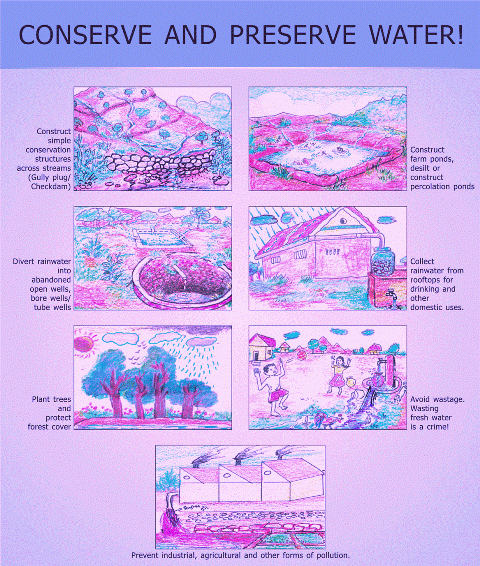by: P.K.Balachandran
Source: http://www.earthtimes.org/articles/show/164359.html
Colombo, Dec 26 - The destruction wrought by the tsunami of Dec 25, 2004 on the southwestern coast of Sri Lanka would have been much less if successive governments had heeded Sir Arthur Clarke's persistent call to stop the mining of corals.
The British-born science writer and diving enthusiast, who had been living in Sri Lanka since 1956, was campaigning for coral reef protection and other matters relating to coastal preservation for long. But few in the island listened.
'He did create an awareness at the international level, but the message never percolated to the local level here in Sri Lanka,' said Vinod Moonesinghe, an environmental activist who had worked with the NGO 'Friends of the Earth.'
'The coral reefs from Akurela to Hikkaduwa were being mined for years to make lime which is used in the construction of buildings. The area had, in fact, become very famous for its lime. But the depletion of the corals had resulted in the killer waves lashing the shore with an unprecedented ferocity,' Moonesinghe told IANS on the third anniversary of the deadly tsunami..
In a place called Peraliya, 96 km south of Colombo, 1,500 people were killed in a matter of minutes, when the railway train in which they were traveling was struck by giant waves twice in quick succession. Peraliya town too lost heavily, with 2,500 dead and 450 families rendered homeless.
The battered, dented and rusted train quickly became a major tourist attraction, being the last vestige of the tsunami in the area, and the grimmest reminder of it.
'The corals in the 'coral garden' at Hikkaduwa and Akurela have survived the fury as they are better able to stand the waves than the species on land. And they continue to be a tourist attraction,' Moonesinghe said.
'The authorities must stop not only the mining of corals, as a matter of great urgency, but control the discharge of effluents from the beach hotels, that dot the coast,' he said.
The palm fringed coastline from Colombo to Galle has been a major tourist attraction, especially for Westerners looking for sun and sand. The place bristles with small and large lodges and hotels, several of them right on the shoreline.
Tsunami had induced some awareness of coastal management. The government had introduced a rule that there should be no construction within hundred metres of the shoreline. But the conservation measures are being implemented in a very 'desultory' manner, says Moonesinghe..
Over the years, the sea has eroded the southwestern coast greatly, and beaches are becoming scarce all along the Colombo-Galle road. In many places, the shoreline is barely a few yards away from the main road and rail line. And it is feared that due to global warming, erosion will only increase in the years to come, hitting tourism, which is already declining due to the war and the terrorist bombings.
Colombo, Dec 26 - The destruction wrought by the tsunami of Dec 25, 2004 on the southwestern coast of Sri Lanka would have been much less if successive governments had heeded Sir Arthur Clarke's persistent call to stop the mining of corals.
The British-born science writer and diving enthusiast, who had been living in Sri Lanka since 1956, was campaigning for coral reef protection and other matters relating to coastal preservation for long. But few in the island listened.
'He did create an awareness at the international level, but the message never percolated to the local level here in Sri Lanka,' said Vinod Moonesinghe, an environmental activist who had worked with the NGO 'Friends of the Earth.'
'The coral reefs from Akurela to Hikkaduwa were being mined for years to make lime which is used in the construction of buildings. The area had, in fact, become very famous for its lime. But the depletion of the corals had resulted in the killer waves lashing the shore with an unprecedented ferocity,' Moonesinghe told IANS on the third anniversary of the deadly tsunami..
In a place called Peraliya, 96 km south of Colombo, 1,500 people were killed in a matter of minutes, when the railway train in which they were traveling was struck by giant waves twice in quick succession. Peraliya town too lost heavily, with 2,500 dead and 450 families rendered homeless.
The battered, dented and rusted train quickly became a major tourist attraction, being the last vestige of the tsunami in the area, and the grimmest reminder of it.
'The corals in the 'coral garden' at Hikkaduwa and Akurela have survived the fury as they are better able to stand the waves than the species on land. And they continue to be a tourist attraction,' Moonesinghe said.
'The authorities must stop not only the mining of corals, as a matter of great urgency, but control the discharge of effluents from the beach hotels, that dot the coast,' he said.
The palm fringed coastline from Colombo to Galle has been a major tourist attraction, especially for Westerners looking for sun and sand. The place bristles with small and large lodges and hotels, several of them right on the shoreline.
Tsunami had induced some awareness of coastal management. The government had introduced a rule that there should be no construction within hundred metres of the shoreline. But the conservation measures are being implemented in a very 'desultory' manner, says Moonesinghe..
Over the years, the sea has eroded the southwestern coast greatly, and beaches are becoming scarce all along the Colombo-Galle road. In many places, the shoreline is barely a few yards away from the main road and rail line. And it is feared that due to global warming, erosion will only increase in the years to come, hitting tourism, which is already declining due to the war and the terrorist bombings.







No comments:
Post a Comment